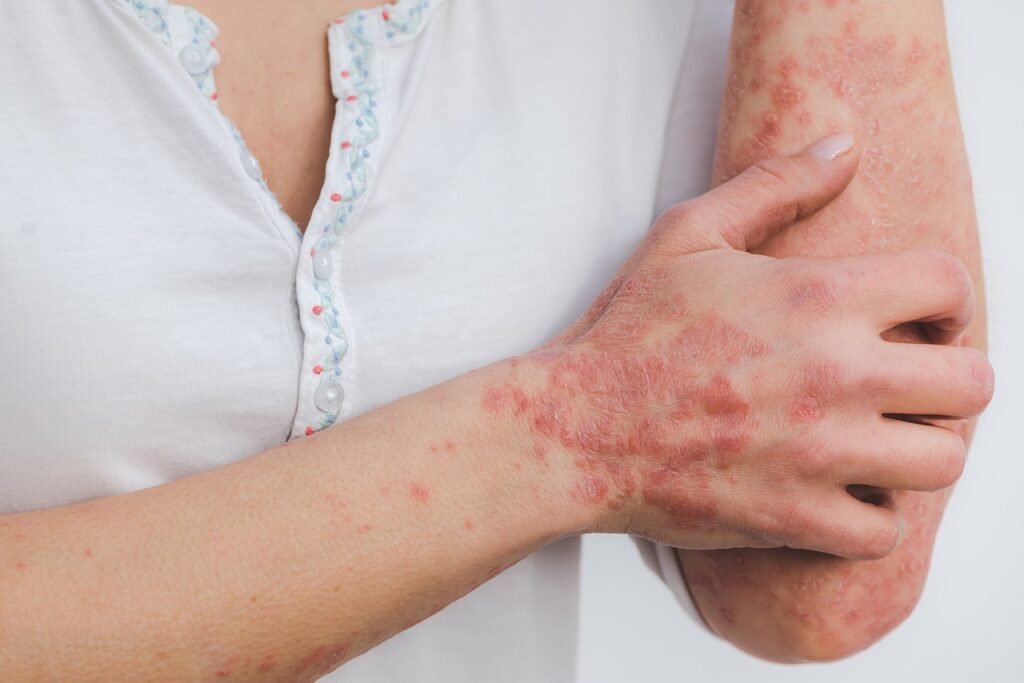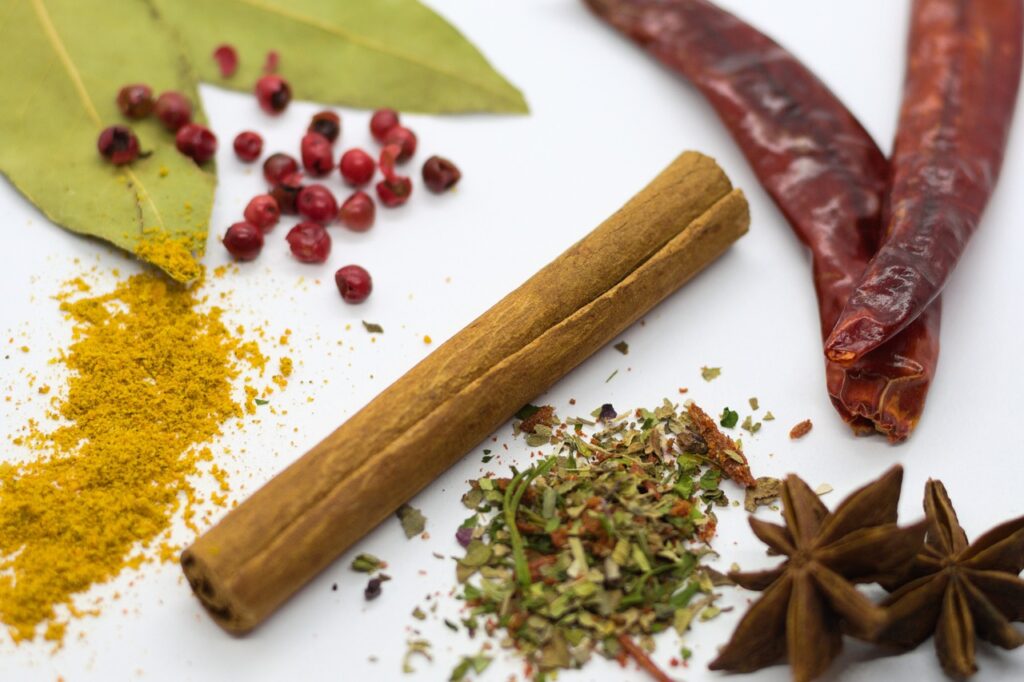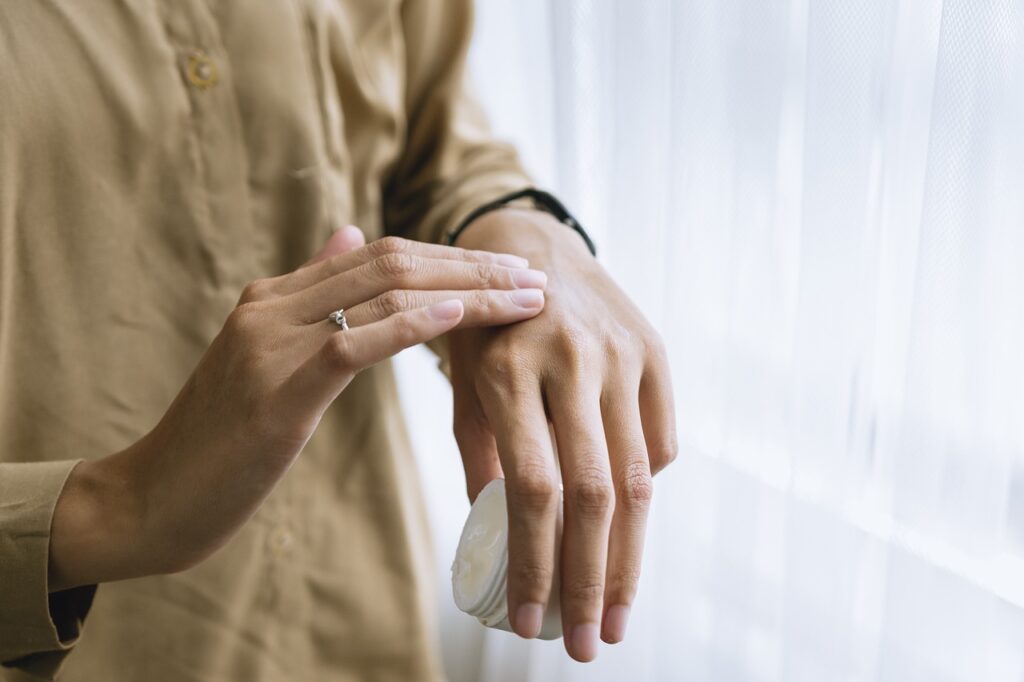Beyond Skin-Deep: Holistic Lifestyle Changes for Psoriasis Relief and Remission
Have you ever been told that psoriasis is something you’ll have to live with forever? That there’s no cure, only temporary fixes? Let me tell you—that’s not the whole story. I know the frustration and despair that comes with hearing, “There’s nothing more we can do,” but I want you to understand that psoriasis is not a life sentence.
It’s an autoimmune condition that can be put into remission.
To achieve this, we need to understand and manage the triggers causing it. It’s about discovering your root causes and learning how to put them into check, so you can feel free in your own skin.
To understand how you can work on managing psoriasis symptoms and possibly sending it into remission, we need a detailed understanding about the truth of this condition: autoimmune responses.
Understanding Psoriasis
Psoriasis isn’t merely a skin issue; it’s an autoimmune condition where the body’s immune system mistakenly targets its skin cells. Instead of functioning normally, the immune system becomes hyperactive, attacking skin cells and causing them to grow and rise to the surface rapidly. This results in inflamed, scaly, and often itchy patches that can vary in color and texture across individuals.

Symptoms of Psoriasis
Psoriasis presents uniquely in each person, but common symptoms include:
- Red, inflamed patches of skin with silvery scales
- Dry or cracked skin that may bleed
- Itching, burning, or soreness around patches
- Thickened or ridged nails
- Joint pain, if psoriatic arthritis develops
What Studies Say*
Research on psoriasis shows several important insights:
- Autoimmune Response: T-cells, normally defenders against pathogens, mistakenly attack skin cells in psoriasis, causing rapid skin cell growth.
- Inflammatory Nature: The immune system’s overactivity leads to chronic inflammation, which is linked to both skin and joint symptoms in some individuals.
- Beyond Skin: Psoriasis can impact not only the skin but also nails and joints, emphasizing the need for a comprehensive approach to managing the condition.
Psoriasis manifests differently for everyone, affecting not just the skin but the entire immune system. By understanding it as an autoimmune response rather than just a skin issue, we can approach remission more holistically.
Also Read: From 95% Psoriasis to 5%–10% on His Entire Body, How This Client Moved from Fear to Hope
Why Your Immune System Acts Erratically: Root Causes and Triggers
When it comes to psoriasis, it’s not just about treating the symptoms but understanding what’s causing your immune system to attack your skin. Let’s break down some of the key triggers that may be fueling psoriasis flare-ups and what you can do about them.
Uncontrolled or Chronic Stress
Chronic stress is a big player here. Think of stress as fuel to the fire—it makes everything worse, including your immune response. Stress isn’t just about work or daily pressures; it can also stem from unresolved emotional trauma, whether from childhood or recent events. For children especially, environments with conflict, bullying, or emotional neglect can manifest as skin conditions like psoriasis. Working on stress through techniques like meditation, exercise, or even simply spending time in nature can help keep flare-ups at bay.

Poor Gut Health
Research has shown that gut health is essential in managing autoimmune conditions. An imbalanced gut can lead to an overactive immune system, which is a direct contributor to psoriasis flare-ups.
Our gut is intricately connected to our immune system. Conditions like leaky gut—where the gut lining is compromised—allow undigested food particles and toxins to enter the bloodstream, causing immune flare-ups.
This triggers inflammation, which directly affects autoimmune responses like psoriasis. Addressing gut health through anti-inflammatory foods, probiotics, and reducing gut irritants can make a profound difference in immune function and, in turn, psoriasis.

Food Intolerances
Certain foods like gluten, dairy, and processed foods tend to be inflammatory and may trigger psoriasis in some people. It’s not about removing every food; it’s about noticing what your body doesn’t tolerate well.
Certain foods, especially gluten and highly processed items, are known to increase inflammation, making autoimmune conditions worse. For some, cutting out or reducing gluten, dairy, and sugary processed foods has helped in managing symptoms significantly.
Understanding these triggers gives you the power to make lifestyle changes that help manage psoriasis. By addressing these root causes, you’re not just treating the skin but working toward long-term remission.
The Personalized Approach to Psoriasis: Understanding Your Root Cause
Psoriasis isn’t just about managing symptoms—it’s about understanding and addressing your root cause. Each person’s triggers and responses are unique, making it essential to pinpoint the underlying factors. For some, dietary choices like gluten or dairy might need to be eliminated to bring relief. For others, specific topical solutions such as warm or cold compresses, diluted apple cider vinegar, or even UV therapy can help soothe their skin.
In our approach, we work on breaking down the root cause of a condition, step by step to uncover what uniquely works for you. By focusing on your body’s signals, you can begin to understand why certain flare-ups occur. For many, they’re driven by stress, gut health, food sensitivities, or lifestyle factors. This process isn’t just about finding a quick fix but getting to the root of the issue for a long-term, sustainable approach.
Disclaimer: Always remember to use common sense and make informed choices. If you’re on medication or undergoing treatment, it’s vital to consult with your doctor before making any significant lifestyle or nutrition changes. Working closely with your healthcare provider ensures that any adjustments support, rather than disrupt, your current health needs.
The Role of Lifestyle and Nutrition in Psoriasis Remission
Managing psoriasis requires more than short-term relief. We need to create lasting habits that reduce inflammation, calm the immune system, and promote healing.
With the right combination of nutrition, movement, sleep, emotional well-being, breathwork, and spirit, you can create an environment that encourages your body’s intelligence to work at its best.
Let’s look at how consistent lifestyle changes contribute to supporting psoriasis remission.
- Get Adequate Movement
- Balanced Activity: Moderate, regular movement supports circulation, lowers stress levels, and enhances immunity. Walking, stretching, and low-impact activities keep your immune system in tune without causing inflammation.
- Finding the Right Intensity: For some, intense exercise can trigger flare-ups. Listen to your body, focusing on consistent movement over high-intensity workouts.
- Prioritize Quality Sleep
- Deep, Restorative Rest: Sleep is the body’s time for repair, helping reset immune function and reducing inflammation. Aim for 7-8 hours of quality sleep each night.
- Creating a Sleep Routine: To promote restful sleep, consider a calming bedtime routine with a regular sleep schedule. This includes dimming lights, avoiding screens, and trying gentle practices like meditation or breathwork to ease into rest.
- Reconnect with the Spirit
- Building Hope and Resilience: Faith, hope, and connection to a higher purpose can be grounding, providing inner strength through health challenges.
- Daily Gratitude & Reflection: Practicing gratitude and forgiveness, finding purpose in daily life, or spending time in quiet reflection can lift the spirit, ultimately contributing to physical health and resilience.
- Use Your Breath
- Calming the Nervous System: Breathing exercises, like deep belly breathing or box breathing, can help bring calm to the nervous system, reducing immune hyperactivity.
- Daily Breathwork Practice: Consider integrating simple breath exercises, meditation, or pranayama daily. These techniques activate the parasympathetic nervous system, helping the body shift from a state of fight-or-flight to one of rest and healing.

Medical Treatments: Steroids and Immunosuppressants
Steroids and immunosuppressants can be powerful tools in managing psoriasis flare-ups, especially when symptoms are severe. These treatments provide much-needed relief by reducing inflammation and calming the immune system, yet they aren’t meant to be used as a lifelong solution. Instead, they work best as part of a balanced, holistic plan that also addresses the root causes of psoriasis.
From my perspective, a balanced approach is key. Yes, using medical treatments to control flare-ups is important, but we also need lifestyle changes that support long-term remission.
Steroids and immunosuppressants help to stabilize the symptoms of autoimmune conditions, but true and lasting relief often comes from addressing the root cause.

By focusing on the broader picture, including nutrition, sleep, and stress management, we can gradually reduce the dependency on medication and help the body find its equilibrium.
Tips for Managing Psoriasis and Achieving Remission
Achieving remission for psoriasis isn’t just about managing symptoms—it’s about nurturing an environment that supports your body and mind. Here are actionable steps to guide your journey:
- Acceptance as a Starting Point: Begin with acknowledging psoriasis as part of your life without resistance. Acceptance doesn’t mean giving up; it’s about understanding your condition without letting it define you, setting the stage for constructive change and remission.
- Emotional Balance: Emotional health is deeply tied to physical health, especially in autoimmune conditions. For those with psoriasis, working on releasing suppressed and repressed emotions—whether through journaling, talking openly, or finding a supportive group—can ease the emotional load on the immune system.
- Stress Management: Psoriasis often flares with chronic stress. Incorporating mindfulness, breathwork, or yoga practices can be invaluable for calming the mind and lowering cortisol levels, reducing the potential for flare-ups. Techniques like deep breathing or progressive muscle relaxation can help you ground yourself in moments of stress. Practices such as journaling, spending time in nature, connecting with loved ones, and counseling can offer relief. Remember, emotional resilience is key to supporting overall health.
- Nourishing Nutrition: Anti-inflammatory ingredients that include foods rich in antioxidants and essential nutrients help create a supportive internal environment. Opt for berries, green leafy vegetables, turmeric and spices, nuts, and seeds to promote immune balance and support the gut, which is often linked to autoimmune health. Adding foods like fermented vegetables (for probiotics) and prebiotic-rich foods, such as garlic and onions, can support gut health, which, in turn, balances the immune response.
- Limit Alcohol: Alcohol consumption can affect the liver and autoimmune response, causing flare-ups for some patients. Minimizing or pausing alcohol consumption can significantly reduce triggers for flare-ups, especially given its known effects on the immune system.
- Explore UV Light Therapy: For some, carefully managed UV light exposure can alleviate psoriasis symptoms. Consult your healthcare provider to see if this might suit your treatment plan.
- Care Around Sunlight Exposure: While sunlight may help some, it may work the opposite with others. Make sure you know what works for you and take the necessary steps to promote or limit sunlight exposure accordingly.
- Avoid Triggering Medications: Work with your doctor to identify and monitor medications that may exacerbate psoriasis. Certain medications, such as specific high blood pressure drugs, lithium, and antimalarial medications, are known to worsen psoriasis. If you’re on any of these and notice flare-ups, it might be worth discussing alternatives with your healthcare provider.
- Topical Treatments: Personalize your skincare routine—some people find relief using apple cider vinegar, aloe vera, or calming oils or moisturizers that suit sensitive skin.

Final Word:
Psoriasis doesn’t have to control your life. By taking a holistic approach—one that addresses your physical health, emotional resilience, and lifestyle—you can actively work towards putting it into remission. Remember, this isn’t a quick fix or chasing an elusive cure.
It’s about understanding your body, embracing your unique triggers, and nurturing your mind and body in ways that support long-term remission. Every step you take towards these changes is a step closer to reclaiming your confidence, comfort, and well-being.
*References:
- Smith, J., et al. Role of Gut Health in Autoimmune Disorders, Journal of Immunology Research, 2020.
- Johnson, P. The Impact of Stress on Immune Function, International Journal of Health Sciences, 2018.
- Miller, A., & Brown, C. Effectiveness of Anti-Inflammatory Diets in Psoriasis Management, Nutrition & Health Journal, 2019.
- Robinson, D. Understanding T-Cells and Autoimmune Responses, Immunology and Allergy Clinics of North America, 2021.
- National Psoriasis Foundation. Guide to Psoriasis Triggers and Remission Techniques.
Ready to Make Your Health a Priority?
Start your journey with one positive action today.
Check Out Our Skin Care Program.
Looking for personalized advice? Our experts are ready to help you thrive.
Reach Out to Team Luke’s Integrative Health Coaches!
Book a one-on-one with our team: 1800 102 0253 or write to us at consults@lukecoutinho.com.
|
From a pimple to cancer, our You Care Wellness Program helps you find a way Talk to our integrative team of experts today 18001020253 |










Leave a Reply